The Geography Olympiad: Bandung, Indonesia
School student Dion Thompson joined Team UK at this year’s International Geology Olympiad in Indonesia. We hear from Dion’s mentor Anna Hicks, before Dion reports on the Olympiad itself.
22/12/2023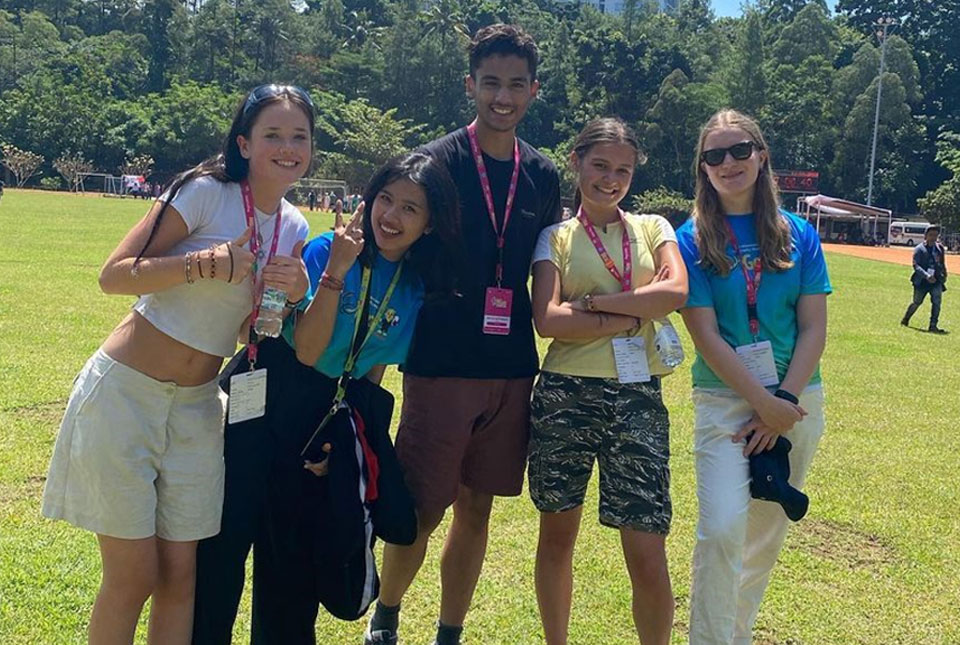
There are a myriad of ways in which we engage with the public at BGS. When we think of public engagement, our minds might conjure up open days, school career talks or community-based meetings. Hopefully, we’ve all had at least one experience where having a meaningful interaction about a topic can produce the ‘feel-good’ emotions that come from being animated or passionate about something. But communicating this feeling can also be mutually enriching and could lead to something new: perhaps research ideas, new ways of thinking and understanding — or maybe even a change of career.
When school student Dion Thompson contacted me earlier in the year, he was keen to find out more about Tristan da Cunha, an island context and community with which I’m very familiar. He was undertaking a school research project about the effects of volcanism on socioeconomic activity, particularly the effects on agriculture. He’d certainly done his research and knew how and who to reach out to! He asked me some great questions and gave me things to think about too.
From simply being curious and conscientious, Dion’s 2023 was about to head in a very exciting direction. His essay on Tristan da Cunha won him a place as part of Team UK at the International Geography Olympiad, which this year was held in Bandung, Indonesia. The rest of this blog is his story, reflections and knowledge he gained from his incredible experience.
The Geography Olympiad: Dion’s story
My experience at the International Geography Olympiad, known to many as iGeo, was fascinating to say the least and definitely an event to remember! It took place from 8 to14 August 2023, giving my team and the opportunity to step out of the classroom straight into the heart of Bandung, Indonesia.
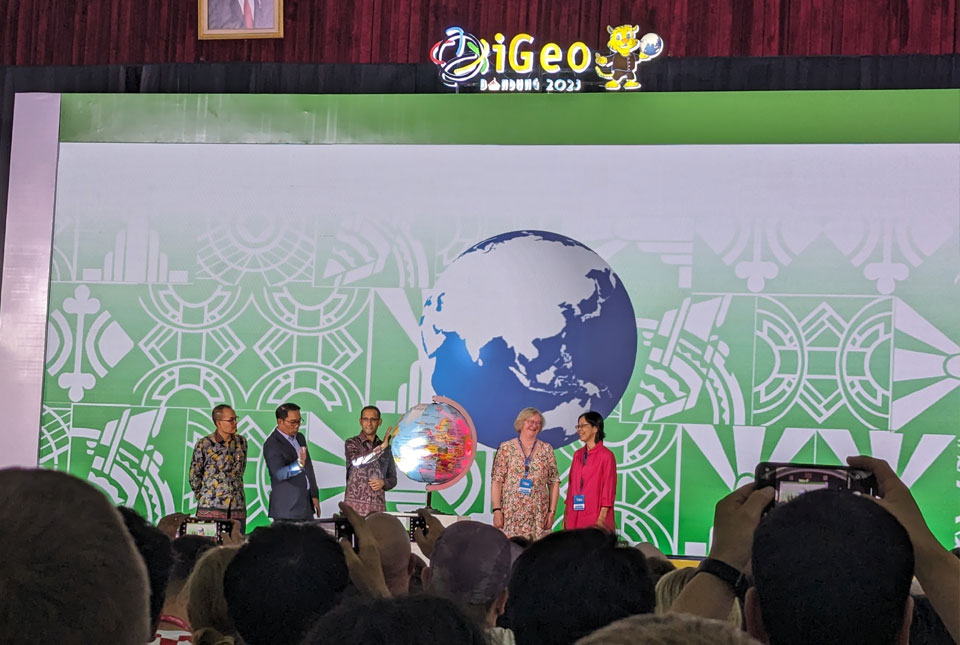
iGeo organisers presenting the opening ceremony. Source: iGeo Indonesia Organising Committee
Parallel to three different exams, which explored a variety of disciplines such as geological drawing, orienteering and quickfire geographical knowledge, I was able to immerse myself into Indonesian culture and the competition I also had the opportunity to interact with people from so many different countries. It was definitely an event to remember and something I would highly recommend to anyone interested in geography!
Upon reaching Bandung, we were introduced to the international cohort of teams that we would be competing against at the Olympiad. From Bulgaria to Japan, Nigeria to Belarus, there were so many countries being represented: fitting for a geography competition! The opening ceremony spectacularly outlined what our time would be like at iGeo, as well as showcasing several performances from Indonesian dancers and musicians. Later that day, we were brought to the governor’s palace in Bandung to have a gala dinner.
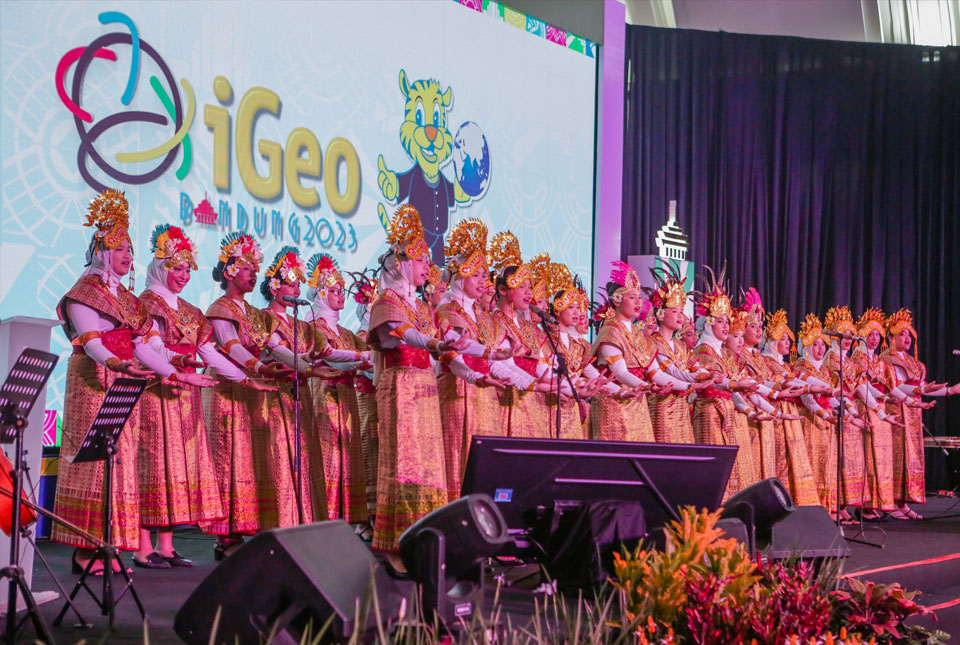
Indonesian dancers at the gala dinner. Source: iGeo Indonesia Organising Committee
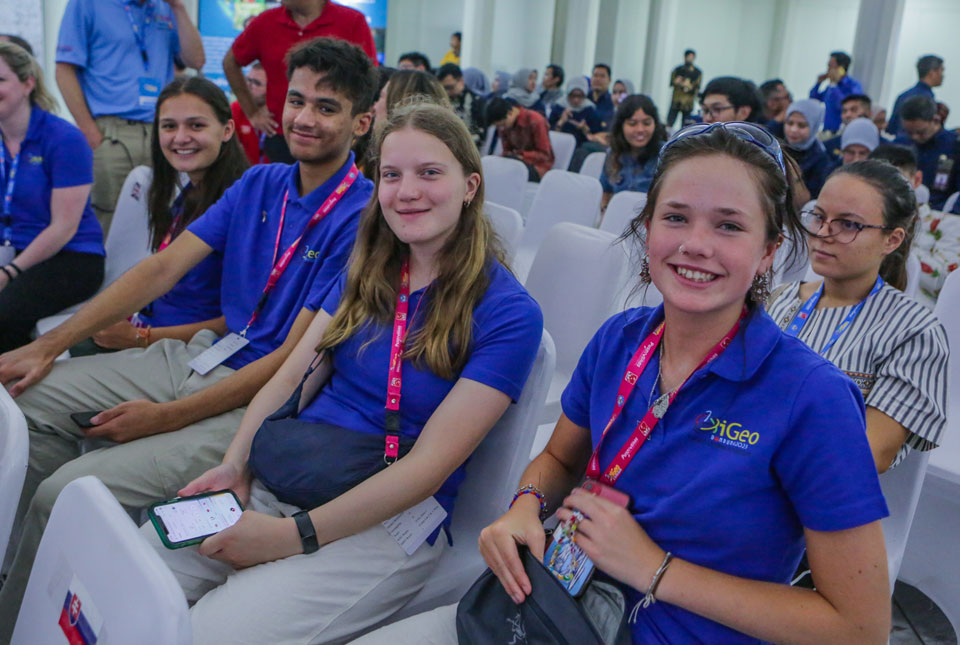
Team UK at the Opening Ceremony. Source: iGeo Indonesia Organising Committee
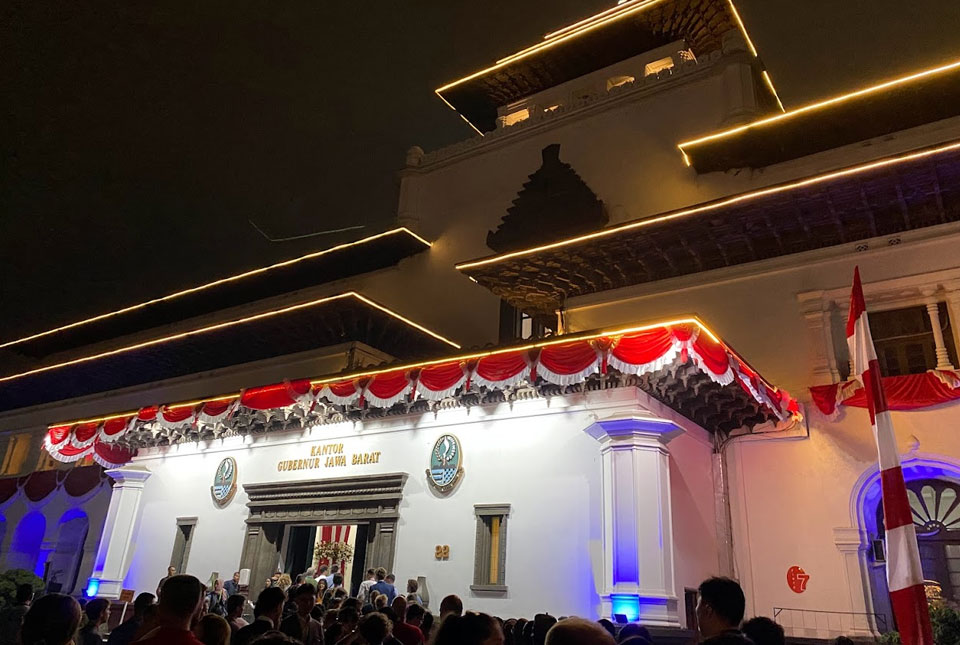
Gedung state building, where the gala dinner took place. Source: Dion Thompson
The next day, the competition started off strong with the written response test, worth around 40 per cent of our score. We were all quite nervous; however, after sitting the exam, my team and I felt confident in our answers (besides a few of the drainage basin questions, which I had yet to learn about in class!) I found the written response test extremely engaging as, rather than having to memorise answers, I was able to utilise the geography knowledge I already had, making it a much more rewarding exam to complete.
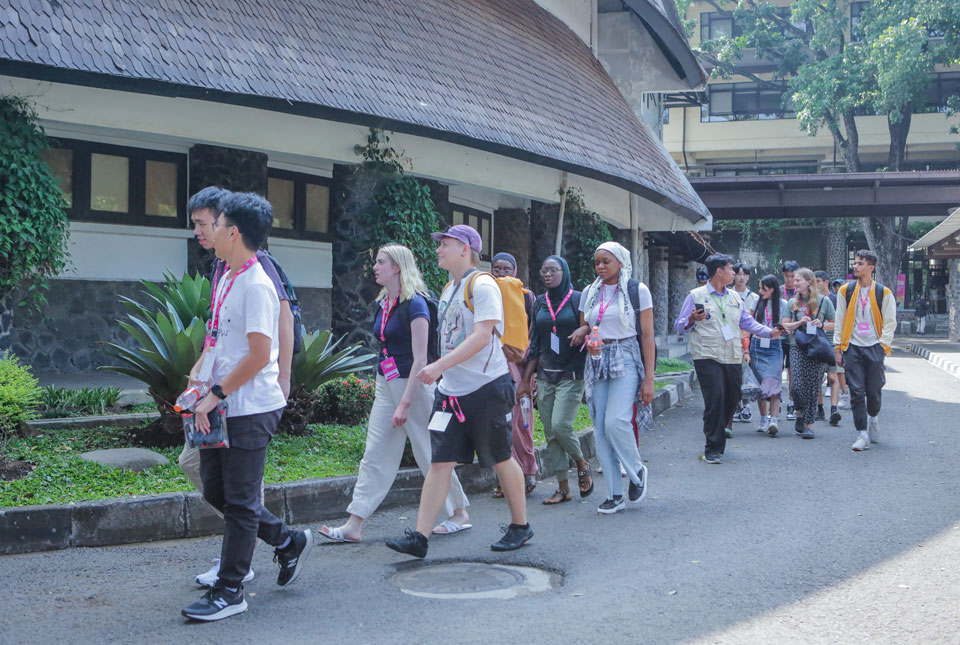
Students walking to the written response test at the Bandung Institute of Technology. Source: iGeo Indonesia Organising Committee
Day three was the fieldwork test, possibly the most strenuous test both mentally and physically. We were driven to the mountainous outskirts of Bandung, where we had to complete multiple fieldwork activities including mapping, data collection, zoning of the local area and drawing geological sketches. It was extremely satisfying to see how the data we collected in the rainforest and nearby town had to be utilised in the fieldwork exam. It was also a great way to see the natural beauty of Indonesia; I had never been in a rainforest before and there were so many different animals roaming around as we conducted our exam. It was a world unlike any that I’d ever experienced.
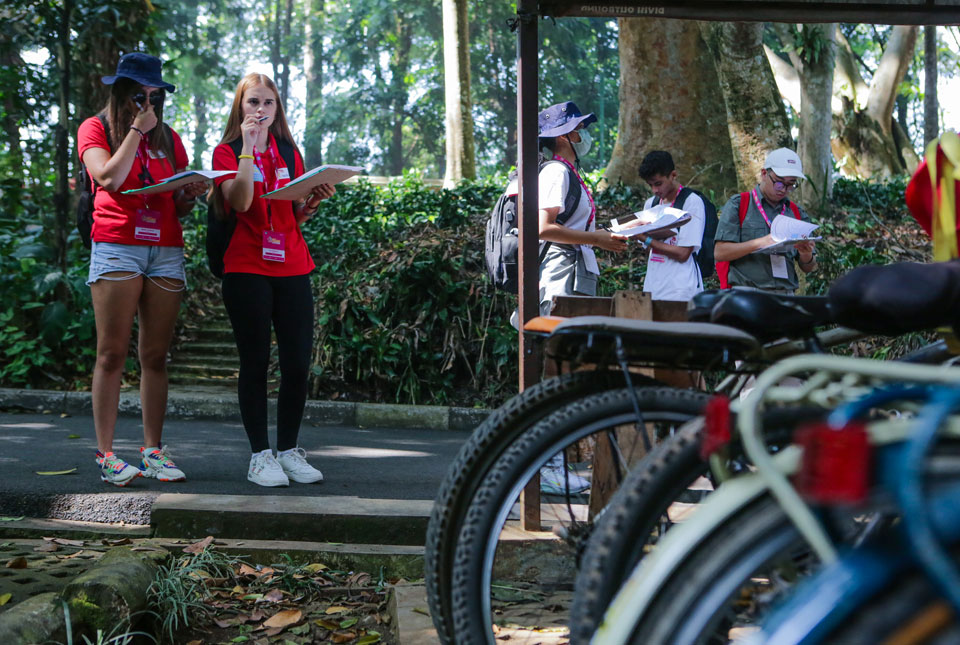
Fieldwork test observation at site one. Source: iGeo Indonesia Organising Committee
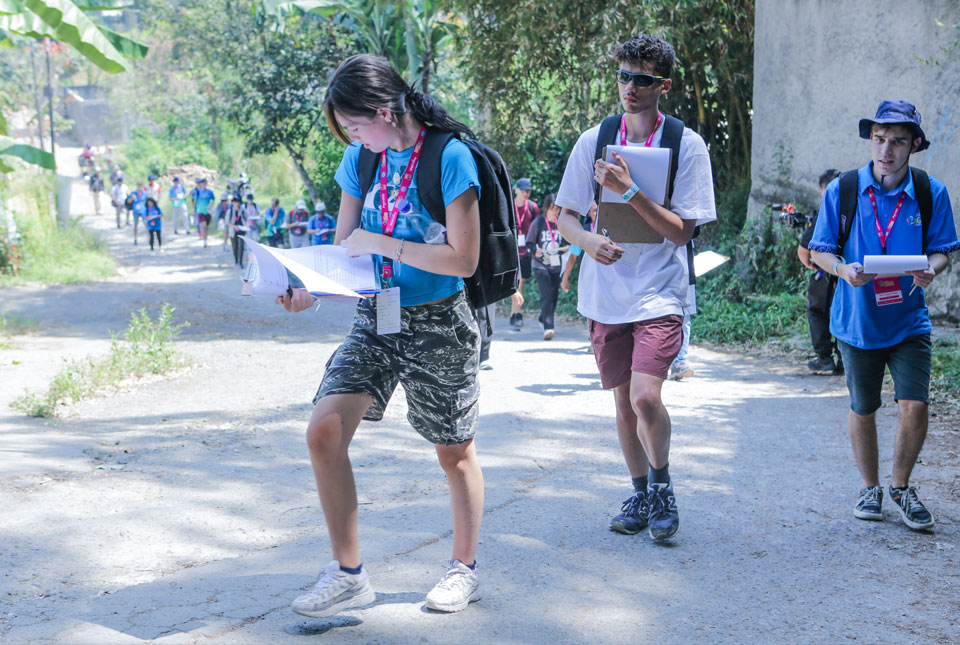
Team UK en route to Site 2 of the fieldwork exam. Source: iGeo Indonesia Organising Committee
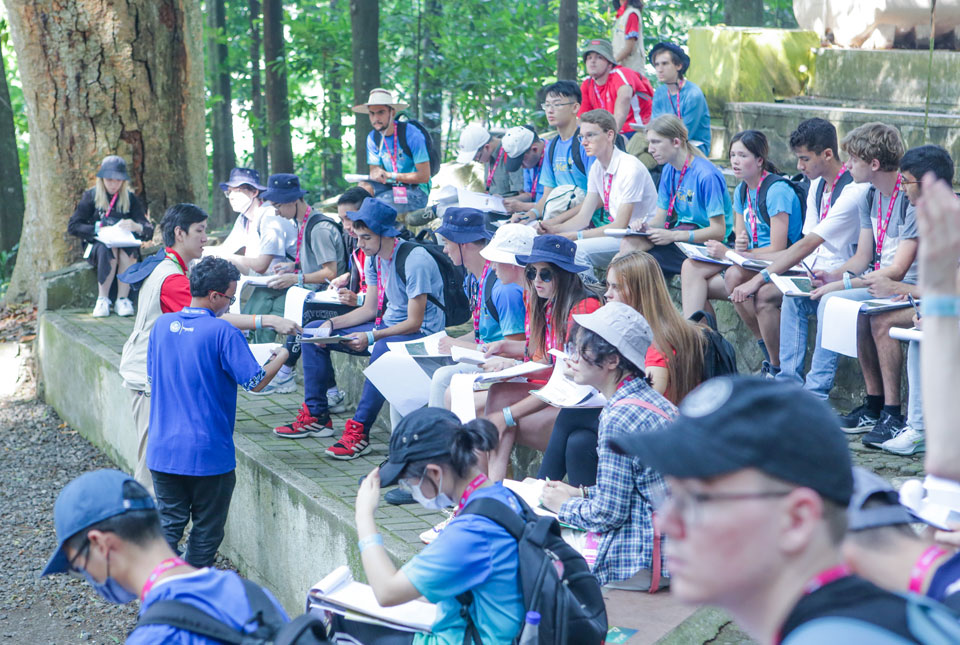
Briefing for the fieldwork test. Source: iGeo Indonesia Organising Committee
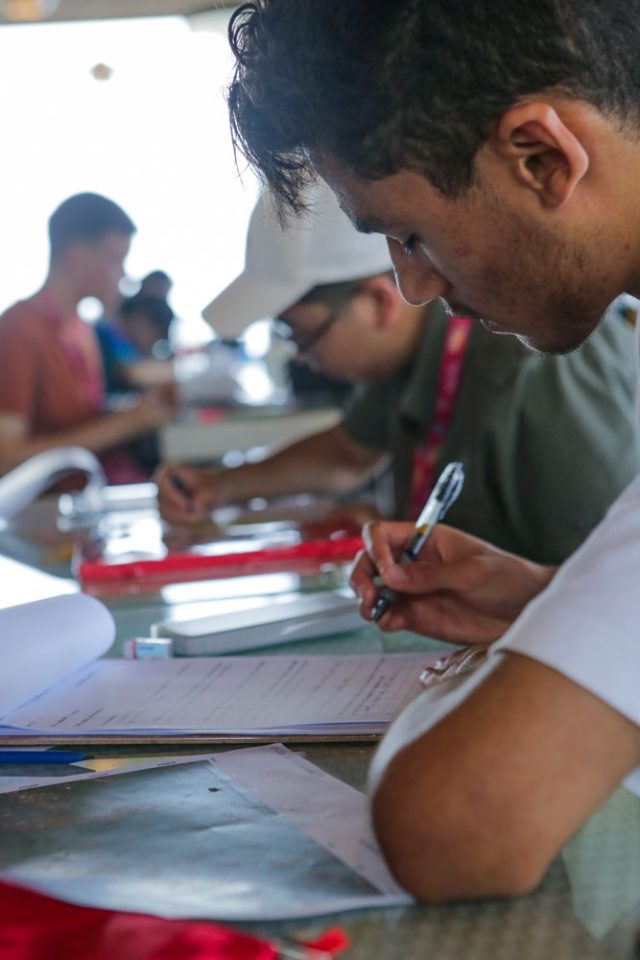
Written exam based on data collected from fieldwork observations. Source: iGeo Indonesia Organising Committee
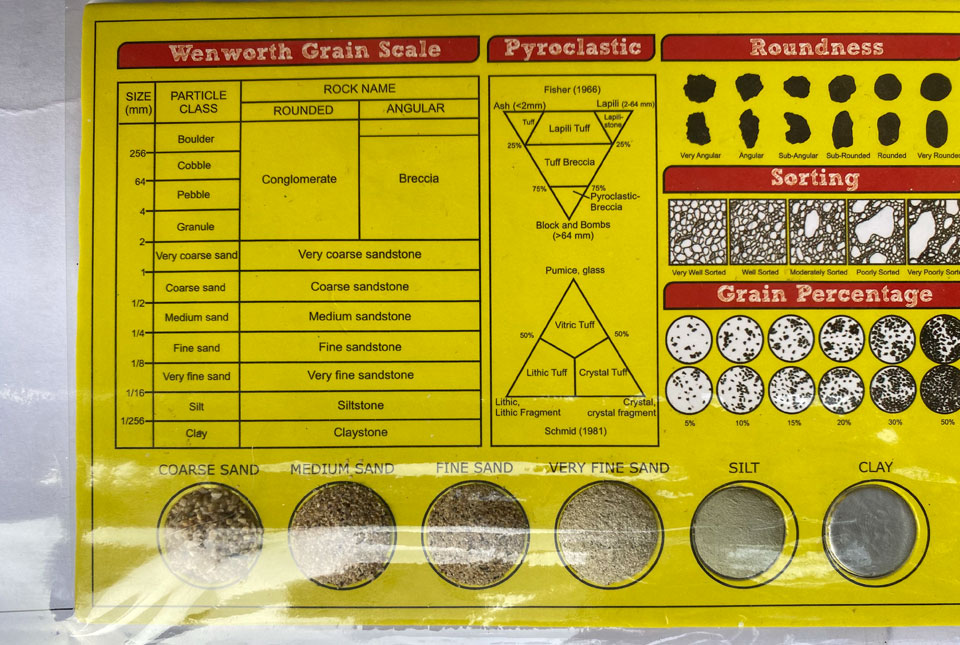
Guide used for geological outcrop drawings. Source: Dion Thompson
Day four was the first day free from exams, allowing us to breathe a little bit in preparation for the multimedia test on the penultimate day. We spent our time taking an excursion to the Tangkuban Perahu volcano with its massive caldera and sulphurous clouds bubbling up to the edge. It was a sublime sight and for, many of us, it was our first time seeing an active volcano.
Our poster presentation took place that evening: in preparation for iGeo, Team UK had worked on a poster focusing on the diversity of Britain. My section focused on the architecture of Croydon, my home town. Presenting in a grand expo hall was nerve-wracking, but we eased into it and got to learn about so many other amazing countries!
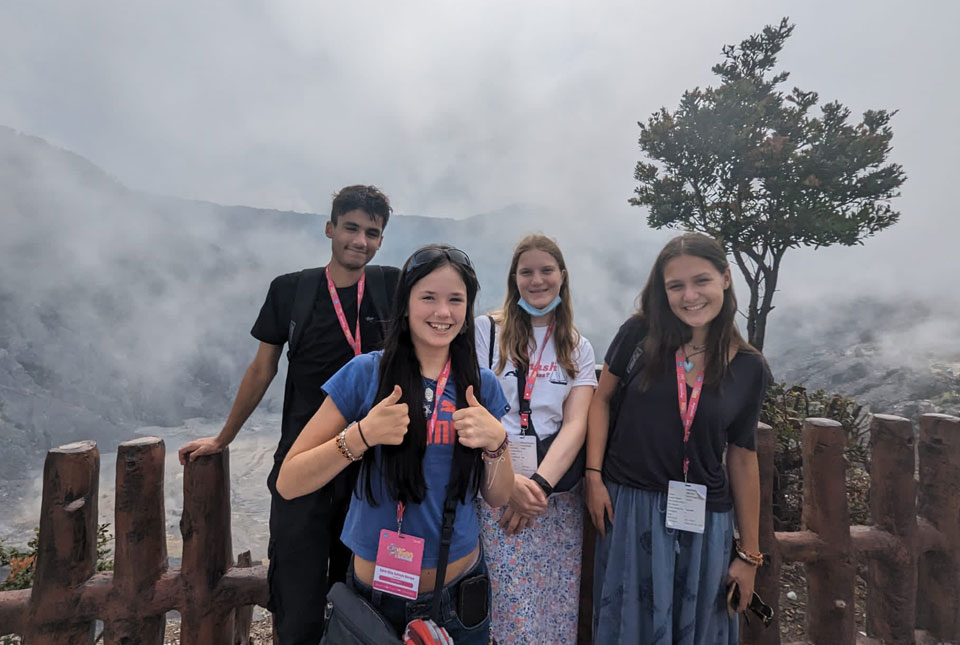
Team UK at Tangkuban Perahu volcano. Source: Jo Bayham & Jen Lomas
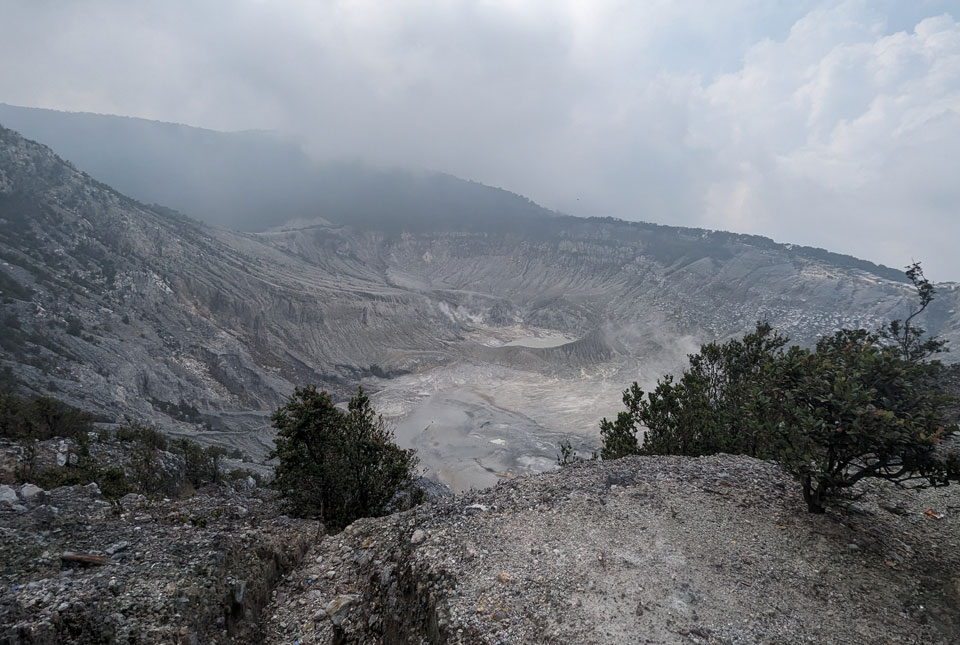
The Tangkuban Perahu caldera. Source: Dion Thompson
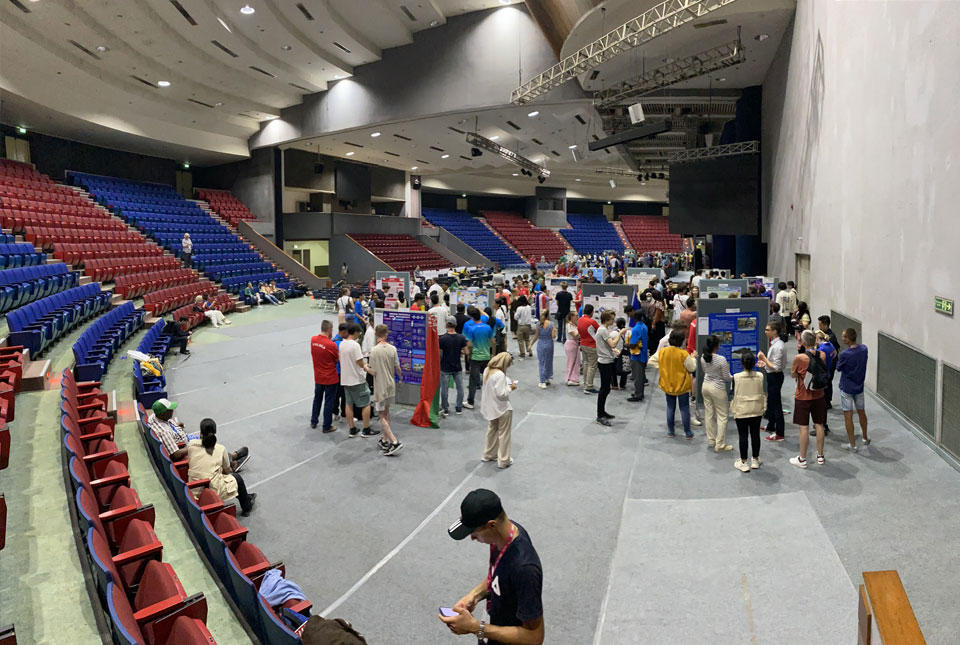
Expo hall for the poster competition. Source: iGeo Indonesia Organising Committee
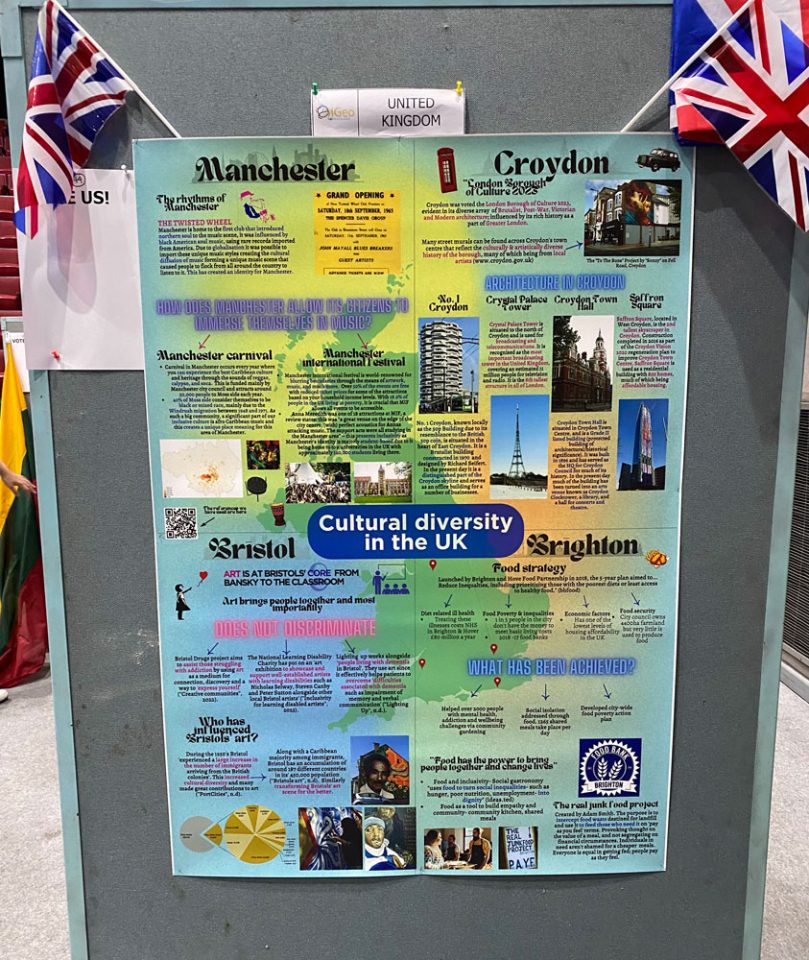
Team UK’s poster on the cultural diversity of Manchester, Croydon, Bristol and Brighton. Source: Dion Thompson
The multimedia test took place on day five, examining us on a wide range of geographical topics. To cool off afterwards we took part in a traditional sports day, where we learned many new activities including walking on stilts, archery using blowguns, a sack race and a six-legged race! We even had a 400 m race between Teams UK and Australia!
The closing ceremony took place on our final day. After an excursion to a mesmerising sculpture park, the medallists of the competition were announced in the evening. Everyone was extremely excited and nervous for the results and, as the bronze medallists were revealed, I was shocked to see my name come up on screen! Surrounded by cheers and somewhat bewildered, I walked up to the stage where I received my medal and held the Union Jack up alongside the other bronze medallists holding their countries’ flags. It was so surreal to have won a medal for Team UK and it was incredible to celebrate with the rest of my team and the friends I had made at iGeo after the ceremony had ended.
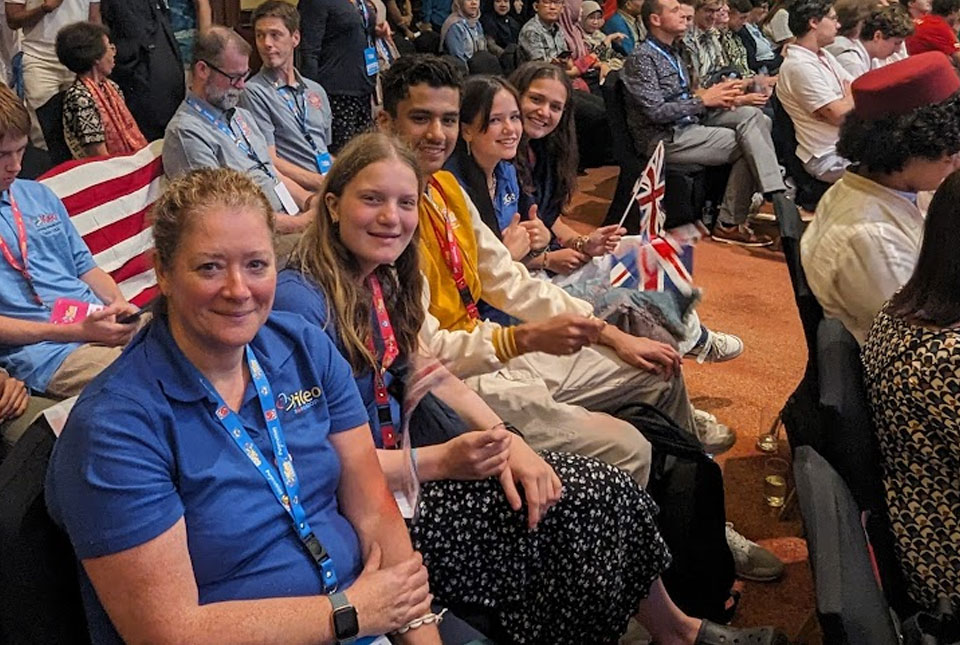
Team UK at the closing ceremony. Source: Jo Bayham & Jen Lomas
All in all, the International Geography Olympiad was an incredible and invaluable experience for me and everyone else who attended. As a geography student, seeing my subject in this kind of grandeur was truly unforgettable. Special thanks to Anna, Sylvie and Charlotte from Team UK; Adit, Jasmine, Tom and Marcus from Team Australia; Gold from Team Nigeria; Douglas from Team Taiwan; Brayden and Xavier from Team Canada, and Jonas and Rune from Team Belgium, amongst others, for contributing to all the positive memories I made at iGeo, as well as Jen, Jo and Sue for organising iGeo for Team UK. Thanks also to BGS for helping me on my journey to iGeo.
To those reading this, I hope this has not only persuaded you to learn more about this fantastic event, but also helped you realise that there are so many amazing opportunities out there, All you’ve got to do is take that chance and make it your own.
About the authors
Dion is now applying for earth science-related subjects at university and hopes to visit BGS soon for work experience.
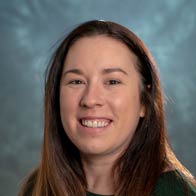
Dr Anna Hicks
Volcanologist, interdisciplinary scientist and science communicator and NERC Knowledge Exchange Fellow
Latest news

Funding awarded to map the stocks and flows of technology metals in everyday electronic devices
12/02/2026
A new BGS project has been awarded Circular Electricals funding from Material Focus to investigate the use of technology metals in everyday electrical items.

New UK/Chile partnership prioritises sustainable practices around critical raw materials
09/02/2026
BGS and Chile’s Servicio Nacional de Geología y Minería have signed a bilateral scientific partnership to support research into critical raw materials and sustainable practices.

Extensive freshened water confirmed beneath the ocean floor off the coast of New England for the first time
09/02/2026
BGS is part of the international team that has discovered the first detailed evidence of long-suspected, hidden, freshwater aquifers.

Funding secured to help mitigate ground risk in UK construction sector
05/02/2026
The BGS Common Ground project has been awarded new funding to help unlock the value of ground investigation data.

Can sandstones under the North Sea unlock the UK’s carbon storage potential?
02/02/2026
For the UK to reach its ambitious target of storing 170 million tonnes of carbon dioxide per year by 2050, it will need to look beyond the current well-studied geographical areas.

Quaternary UK offshore data digitised for the first time
21/01/2026
The offshore wind industry will be boosted by the digitisation of a dataset showing the Quaternary geology at the seabed and the UK’s shallow subsurface.

Suite of ten new soil reference materials released
02/01/2026
BGS has a longstanding track record of producing high-quality reference materials and has released ten new soil reference materials.

Perth and Kinross tops the UK’s earthquake activity charts for 2025
29/12/2025
Seismologists at BGS have published data on the number of seismic events over the past 12 months with over 300 earthquakes recorded.

BGS awarded funding to support Malaysia’s climate resilience plan
17/12/2025
The project, funded by the Foreign, Commonwealth & Development Office, will focus on minimising economic and social impacts from rainfall-induced landslides.
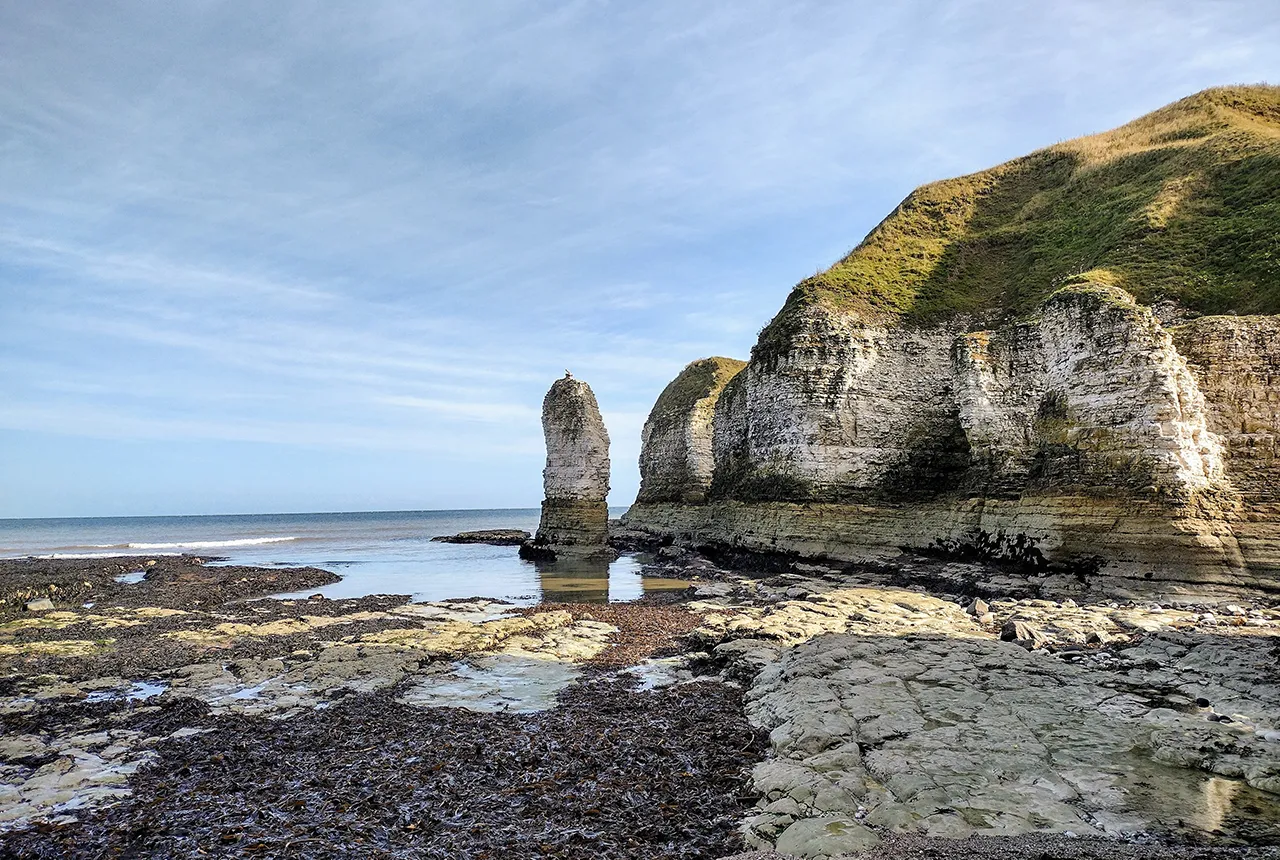
New geological maps of the Yorkshire Wolds to better inform groundwater management and policy decisions
17/12/2025
The new mapping provides crucial data on localised geological issues that may assist in protecting water supplies.
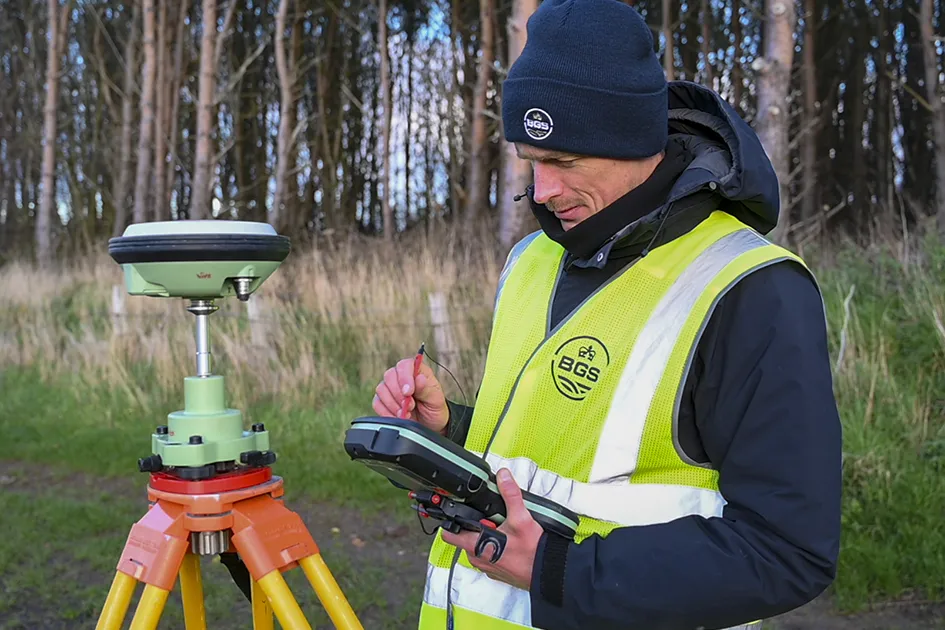
‘Three norths’ set to leave England and not return for hundreds of years
12/12/2025
The historic alignment of true, magnetic, and grid north is set to leave England, three years after they combined in the country for the first time since records began.
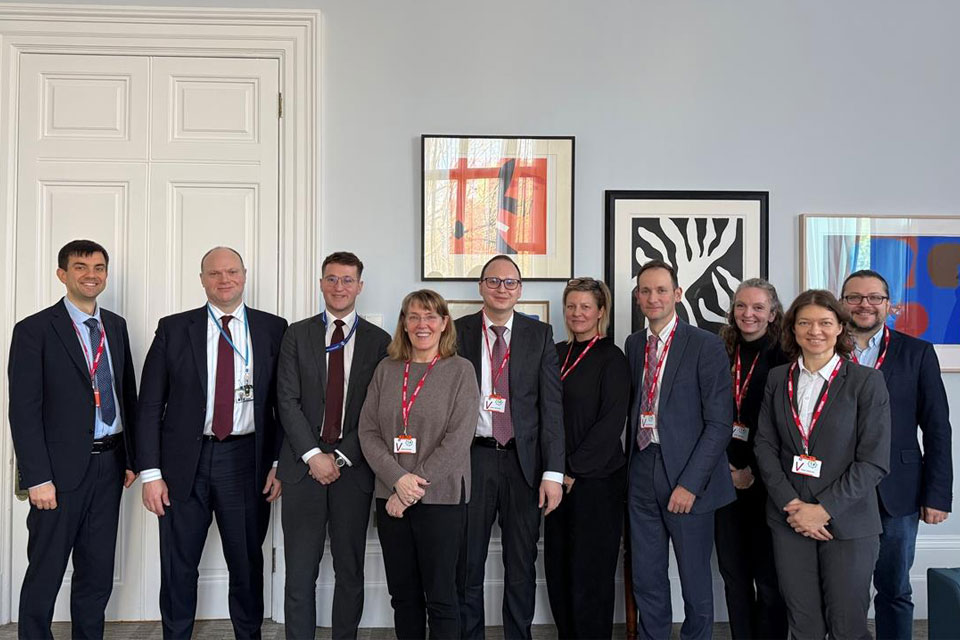
BGS agrees to establish collaboration framework with Ukrainian government
11/12/2025
The partnership will focus on joint research and data exchange opportunities with Ukrainian colleagues.


